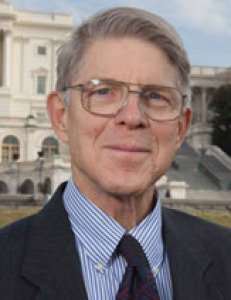This year, as last year, the chair of the powerful Senate Energy and Natural Resources Committee is championing Keystone XL pipeline legislation to end what she calls six years of Obama administration delay and force construction of the controversial project to carry thick Canadian tar sands oil to a Texas refinery for possible export.
The difference is that this year’s committee chair is Republican Lisa Murkowski of Alaska – not Democrat Mary Landrieu of Louisiana. After falling one vote short of passing the Keystone bill in the Senate last year, Landrieu lost her re-election bid and her party lost its majority control of the Senate. So just as new Majority Leader Mitch McConnell, R-Ky., promised, the Senate and House energy committees are working closely together to make sure that the first bill the new Congress sends to the White House is the Keystone pipeline legislation.

Sen. Lisa Murkowski, R-Alaska
The bare-bones three-page bill orders that “TransCanada Keystone Pipeline, L.P. may construct, connect, operate, and maintain the pipeline . . .” The Senate's 63-32 cloture vote Monday moved the bill forward for debate and showed 10 Senate Democrats, plus Independent Angus King of Maine, support at least debating the Keystone bill. Next, this week will decide whether enough sweetener amendments are added to attract enough Senate Democrats to reach the 67 votes needed for the bill to overcome the White House’s promised veto. The 10 Democrats were Michael Bennet, Tom Carper, Bob Casey, Joe Donnelly, Heidi Heitkamp, Joe Manchin, Claire McCaskill, Jon Tester, Tom Udall and Mark Warner.
The bill has already become a rallying cry for both parties. Republicans, in Murkowski’s words, insist that building Keystone is vital to show the world that “we are ready to lead as a global energy superpower which . . . respects its neighbors, trades with allies, and builds necessary infrastructure such as the pipeline.”
Speaking for Democrats (although not for the party members backing Keystone), Senate Energy Committee member Martin Heinrich of New Mexico warns that “by making tar sands the linchpin of American energy policy, we are literally locking ourselves into a policy that fully embraces energy imports and extremely high levels of relative carbon pollution for as long as 50 years, all at a time when we should have a national policy focused on domestic production and ever-cleaner fuel sources. A vote to approve Keystone sends the signal that carbon pollution and climate change are not serious economic concerns.”
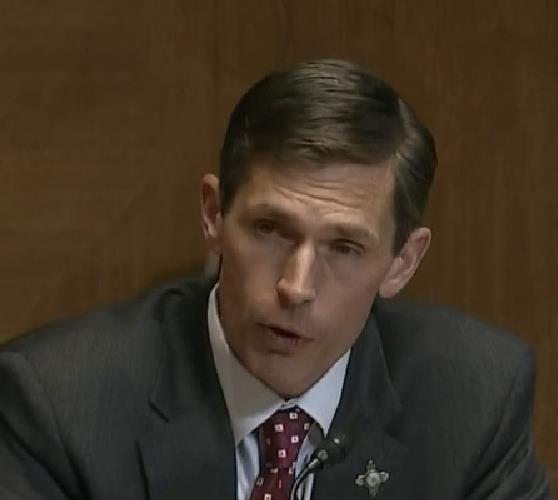
Sen. Martin Heinrich, D-N.M.
Heinrich adds that Keystone threatens to reduce “our own domestic oil production and jobs in oil-producing states like my own.” He insists that “a vote against the tar sands project sends the signal that our government is finally taking the science of climate change and risk analysis seriously and that the smarter investments are in low-carbon and sustainable fuels of the future.”
Rejecting the GOP argument that Keystone is needed to create jobs, Heinrich says wind and solar energy already create far more jobs and that “one transmission line that will soon cross my state and [Arizona] can produce as many permanent jobs as three Keystone pipelines.”
One point Democrats and Republicans agree on is that the contentious Keystone battle should initiate a full debate on national energy policy, hopefully leading to bipartisan agreement on comprehensive energy legislation this year. Murkowski promises that her committee will begin work right away on issues including bipartisan legislation on electric grid innovation, nuclear waste, offshore oil revenue sharing, critical minerals and removing the ban on crude oil exports, with the goal of writing a comprehensive energy policy bill by late spring.
Democrat Maria Cantwell of Washington, the Senate Energy Committee’s ranking member, says she looks forward to ending discussion on “a sweetheart deal” for a private Canadian company and instead “working across the aisle in a bipartisan fashion with all of our colleagues to show we can move our country forward on comprehensive energy strategy.” She says the focus should be on “clean energy solutions that do two things: help the United States establish a leadership position in energy issues, and protect consumers from unnecessary energy price spikes.”
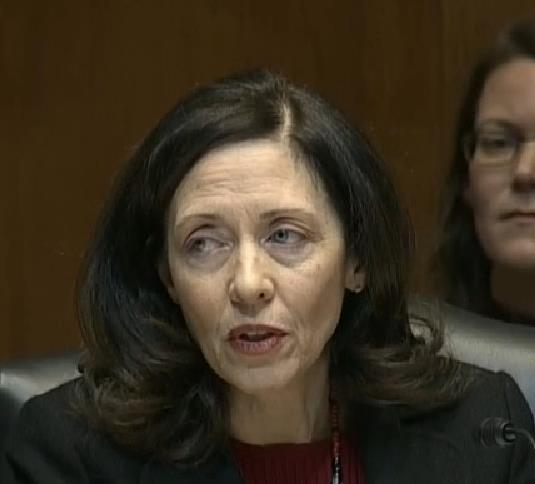
Sen. Maria Cantwell, D-Wash.
If the House and Senate energy committees do tackle comprehensive energy policy this year, key players likely will include:
House Energy and Commerce Committee Chair Fred Upton, R-Mich.
Chairing the committee since 2011, Upton has broad jurisdiction over energy, commerce, manufacturing, trade, healthcare, the environment and telecommunications.

Rep. Fred Upton, R-Mich.
Upton attended the University of Michigan where he earned a journalism degree and was sports editor of The Michigan Daily before joining Congressman David Stockman’s staff. He followed Stockman to work at the Office of Management and Budget during the Reagan administration and was elected to the House in 1986.
Upton lists his top priorities as job creation, economic growth and repealing Obamacare to replace it with “commonsense, market-based reforms.” Upton’s energy views have “evolved” from his 2009 statement that “climate change is a serious problem that necessitates serious solutions. Everything must be on the table.” In 2010, he co-authored a Wall Street Journal editorial rejecting the need for regulating carbon emissions. Subsequently he has called for Congress to reject the EPA’s emissions rules, charging that carbon regulation “threatens to drive energy prices higher, destroy jobs, and hamstring our economic recovery.”
Senate Energy and Natural Resources Committee Chair Lisa Murkowski, R-Alaska
Following work as an Alaska District Court attorney and practicing commercial law in Anchorage, Murkowski was elected to the Alaska legislature in 1998 where she served until she was appointed to the U.S. Senate in 2002, when she was appointed to fill the unexpired term of her father, Frank Murkowski, who resigned the seat after being elected governor. The appointment sparked one of the controversies Lisa Murkowski has overcome during her career. Her appointment led to a state referendum which removed the governor’s authority to appoint a replacement senator. She was elected to a full six-year Senate term in 2004, and was re-elected in 2010 in a historic write-in campaign after losing in the GOP primary.
On energy, Murkowski has acknowledged climate change as real, with rising sea levels already affecting her state. But she also supports oil drilling in the Arctic National Wildlife Refuge and increased offshore drilling, arguing that new technologies have improved the industry’s safety and economics. She has opposed EPA limits on greenhouse gas emissions, stating, “We cannot turn a blind eye to the EPA’s efforts to impose back-door climate regulations with no input from Congress.” After BP’s 2010 Deepwater Horizon oil spill in the Gulf of Mexico, Murkowski opposed legislation to raise the liability cap for oil spills, charging the change would expose companies to greater risk and make it impossible for smaller companies to compete.
Senate Energy and Natural Resources Ranking Member Maria Cantwell, D-Wash.
Despite kind words for each other in Senate Energy Committee meetings, Chairwoman Murkowski and Ranking Member Cantwell have battled over drilling in Alaska’s Arctic National Wildlife Refuge, with Cantwell so far preventing drilling.
Cantwell was elected to the Senate in 2000 and reelected in 2006 and 2012. She also served in her state’s House of Representatives and in the U.S. House for a single term before taking a break from politics and going into private industry as a technology industry VP for RealNetworks from 1995 to 1999, a job which left her with stock options worth multi-millions.
Cantwell has fought against oil and gasoline price increases and for windfall taxes on oil profits. In 2005, she scored a major victory when she blocked then Alaska Sen. Ted Stevens’ push to open the Arctic National Wildlife Refuge for drilling. Cantwell has supported renewable energy development, voted to reduce U.S. oil use 40 percent by 2025, and opposed legislation to roll back or eliminate EPA’s CAFE (Corporate Average Fuel Economy) standards. In 2009, Cantwell and Sen. Susan Collins, R-Maine, co-sponsored the Carbon Limits and Energy for America’s Renewal Act, which proposed new fossil fuels regulations and promoted clean energy.
Senate Energy Committee member Steve Daines, R-Mont.
Elected last year to succeed retiring Democratic Sen. John Walsh, chemical engineer Daines previously worked as a Procter & Gamble manager in China, and, back in Montana, a construction project manager and software company executive before winning election to the U.S. House in 2012.
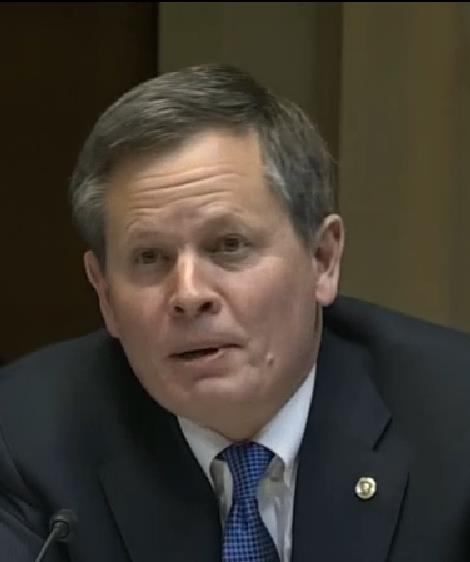
Sen. Steve Daines, R-Mont.
Pledging to support “more jobs, less government” and to give states “more control over energy and timber policies,” as a member of the House Natural Resources Committee, Daines fought coal industry environmental regulations and called for increasing timber harvests on federal lands.
Senate Energy Committee member Bill Cassidy, R-La.
Before ousting then Sen. Mary Landrieu last year in a hard-fought runoff election, physician Bill Cassidy served in the Louisiana Senate from 2006 to 2008 when he was elected to the U.S. House where his three terms were focused on energy policy and healthcare.
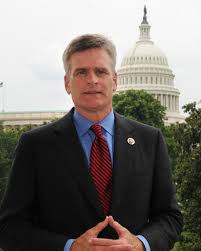
Sen. Bill Cassidy, R-La.
On energy, Cassidy has supported the Keystone pipeline, increased offshore drilling, development of natural gas as fuel, and the Republicans’ all-of-the-above energy strategy.
Senate Energy Committee member Cory Gardner, R-Colo.
In another significant turnover last year, lawyer Cory Gardner defeated former Democratic Sen. Mark Udall. Previously, Gardner worked in the National Corn Growers Association's Washington communications office, worked in his family’s farm implement dealership, was a Senate staffer, and then served in the Colorado House from 2005 until he was elected to the U.S. House in 2010.

Sen. Cory Gardner, R-Colo.
In the House, Gardner built a reputation as an approachable lawmaker committed to building bipartisan alliances, participating in the “No Labels” movement and in a bipartisan House working group. He has supported energy efficiency proposals, rolling back federal regulations, and speeding up permitting, particularly in the energy sector. He supports energy development “whether it’s renewable or it’s traditional” and specifically supports tax credits for wind energy.
#30
For more news go to www.Agri-Pulse.com

